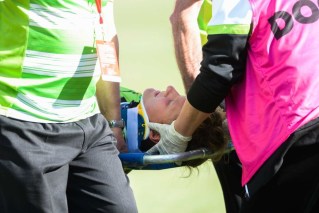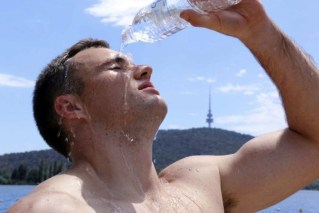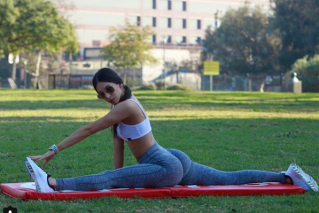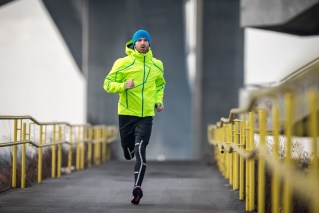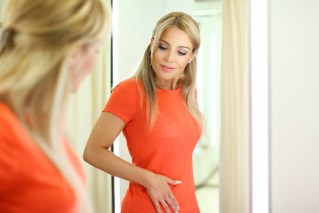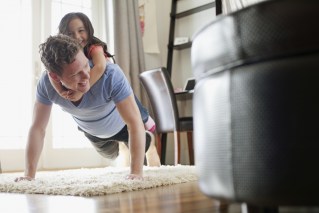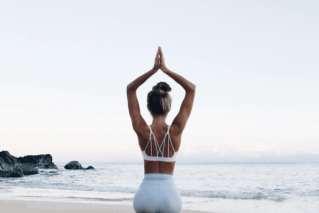Women in sport: striding out of the shadows
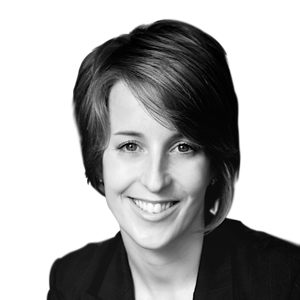
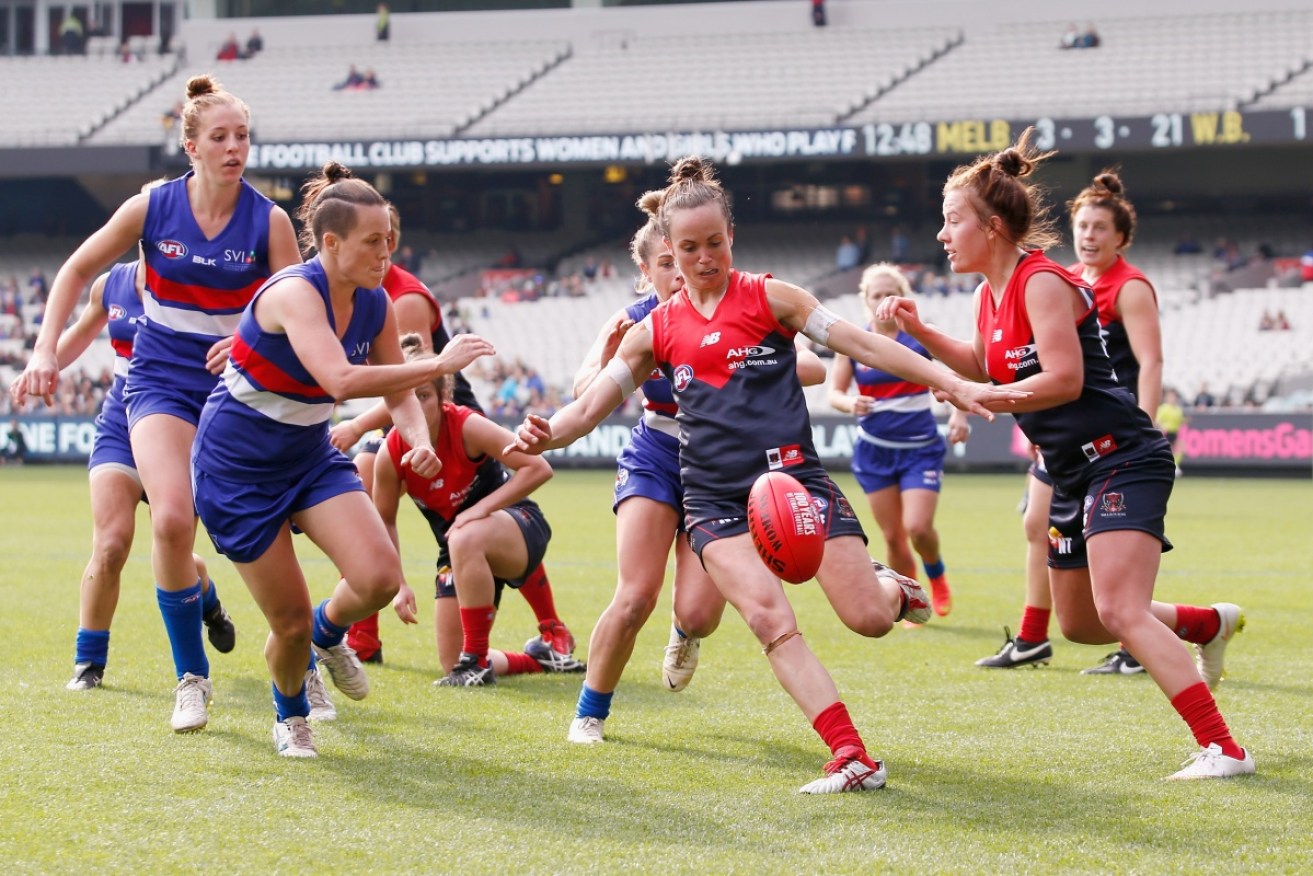
Daisy Pearce kicks downfield during a 2015 AFLW exhibition match. Photo: Getty
No one ever told Melissa Hickey, the Melbourne Football Club’s AFLW marquee player, that you can be anything if you push yourself.
And now, just over a week away from realising her dream of playing AFL, the 32-year-old will tell anyone who listens – especially young women – to “dream big”.
Hickey, who descends from the famous football family of Geelong great Reg Hickey, will line up for the Demons in the inaugural national women’s football league, which kicks off on February 3 with a clash between Carlton and Collingwood.
Leading the way for women to stride out of the shadows of male-dominated sports are athletes like Hickey and her teammate Daisy Pearce, Collingwood stars Nicola Stevens and Moana Hope, cricket greats Meg Lanning and Alex Blackwell, and Rio Olympics gold-medal-winning Rugby Sevens player Emilee Cherry.
Given their recent achievements, there is no doubt 2016 was a breakout year for Australian women in sport.
Women making strides
Matt Favier, acting Australian Sport Commission chief executive, says women’s sport turned a corner in the hearts and minds of the Australian public last year.
“It’s been evidenced on the field of play with the Women’s Big Bash League, the developments of the AFL women’s game, Rugby Sevens and changes to the national netball league, to name a few,” he tells The New Daily.
“Emerging out of 2016 is the fact that these teams have set new standards of opportunities for women to play in what has largely been a male-dominated set of competitions.”

High-profile Southern Stars Elyse Perry and Meg Lanning front the cameras in London. Photo: Getty
Nicola Stevens, Collingwood AFLW marquee player, says women’s sports are changing for the better.
“In recent years we’ve seen a strong cultural shift in attitudes and empowerment of women in sport,” she says. “Elite sport is not only for men, but there’s now a focus on providing women with the same opportunities that men have.”
The road ahead
However, while the landscape of women in sport is changing, there is still a way to go, admits Favier. He believes attention must first be given to greater media and sponsorship support.
“While the national netball league has a new landmark broadcasting deal with Nine Network and Telstra, we are mindful that the current status for other leagues is not perfect by any stretch.”
He says the ASC will use 2017 to encourage the idea that sponsorship and media coverage of female sport is “important and should be taken seriously”.
Remarkably, Chloe Esposito, is reported to still be without sponsorship or corporate backing after becoming Olympic champion in the modern pentathlon in Rio and being voted by the public as the 2016 ABC Sports Personality of the Year.
“Chloe really brought to life the fighting spirit of Australian women,” says Favier. “Her effort to win really captured the imagination of Australians.”
The under-representation of female coaches, managers and sport scientists must also be addressed, adds Favier.

Australian gold medallist Chloe Esposito is said to be without corporate backing. Photo: Getty
Australian female coaches at the Rio Olympics, for example, made up just three per cent of the entire coaching staff. This was despite more women athletes being named on the team, and more medals being awarded to Australian female competitors than their males counterparts.
What’s more, the majority of AFLW teams are led by male head coaches, while the women’s Rugby Sevens, Matildas and cricket’s Southern Stars are also coached by men.
“They [female coaches] are under-represented and we need to do more to provide opportunities to help progress – or fast track – those women who have a level of experience into higher roles,” says Favier.
“Female coaches provide a richness and flavour particularly when it comes to communication with athletes and the way in which they impart their skills and experience when coaching.”
The pay gap
On the topic of pay disparity, Cricket Australia and the Australian Cricketers’ Association are expected to reconvene talks early this year after debate flared in December around a pregnancy clause for female players.

Melissa Hickey looks to lay off a handball. Photo: Getty
For Hickey taking a pay cut, while she shelves her career in occupational rehabilitation to focus on football, will be worth it.
“I’ve never had a job where I’ve actually enjoyed what I’m doing,” says Hickey, who now divides her time between training, helping to develop a Melbourne FC academy for 11- to 15-year-olds and taking shifts at a friend’s gym.
“I’m a bit strapped for cash at the moment, but my first focus is football and being the best player that I can be.”
Southern Stars vice-captain and Sydney Thunder skipper Alex Blackwell has also spoken publicly about her decision to give up being a doctor to become a full-time cricketer.

Alex Blackwell has given up a career as a doctor to chase glory with the Southern Stars. Photo: Getty
“The hardest thing I’ve had to do as a professional cricketer is make the choice to pursue cricket over my career in medicine,” she told Cricket Australia.
“I would rock up to training after work absolutely exhausted, and sometimes late to training, and I was the skipper of the team.
“I wanted to be a captain that led by example … I believe that the choice to be full-time in cricket allows me to just see how good I can be as a cricketer.”
Olympic rower Kim Brennan put a career in law on hold to compete. Her dedication to go one better, from bronze and silver at the London Olympics to winning gold in the women’s single scull in Rio, paid off.
Brennan dominated the final from start to finish and told The Sydney Morning Herald afterwards: “Sports people are held up as heroes, but in reality we are the lucky ones.”

Aussie rower Kim Brennan celebrates her gold medal in Rio. Photo: AAP
Making sacrifices
Ultimately, it seems Australian sportswomen are prepared to make life-changing sacrifices to find out how good they can be in the sports they love so much.
“I think it’s pretty simple, our bodies aren’t designed to play sport into our mid-to-later years … many Olympic athletes careers are anywhere from age 18 until mid-30s, and after that the body changes,” explains Favier.

Rugby is another game on the women’s sports agenda. Photo: Getty
“I think if individuals have a passion to play something that’s important to them, then those windows of opportunities are only available at a particular time in your life – it just delays the time in which people would start their other career outside of sport.”
There’s no doubt these sportswomen are trailblazers and role models for young women across Australia. Many ooze humility, positivity and a genuine passion to play at the highest level, despite the challenges.
Nicola Stevens’ message to younger generations is to “be confident within yourself and your abilities, take risks, set achievable goals and create opportunities from every situation”.
And the opportunities for women in sport are set to evolve in 2017. The Australian Rugby Union intends to capitalise on momentum generated by the national team and launch an Australia-wide women’s Sevens university competition.
The Southern Stars will set out to defend the ICC Women’s World Cup 2017 in England this June, while the Matildas are preparing for the AFC Women’s Asian Cup in Jordan in 2018.

The Matildas will be among the favourites for the Women’s Asian Cup in 2018. Photo: Getty
Having announced three additional teams to enter a new national netball league this year, all eyes will be on the revised competition as it vies for continued popularity among the ever-growing female sports domain.
If 2016 was a breakout year for women in sport, fans are set to feast on some fierce competition as these women breathe new life into Australian sport this year.
These athletes are refreshingly honest and they don’t shy away from the hurt and hard work their new-found elite environment commands. In fact, when asked how she will approach the task of making sporting history next month, Hickey made no mention of taking ‘one week at a time!’
“You have to embrace the grind, embrace the hurt and have confidence that it will all pay off,” she boasts. “It will hurt less in February if we hurt more now!”
